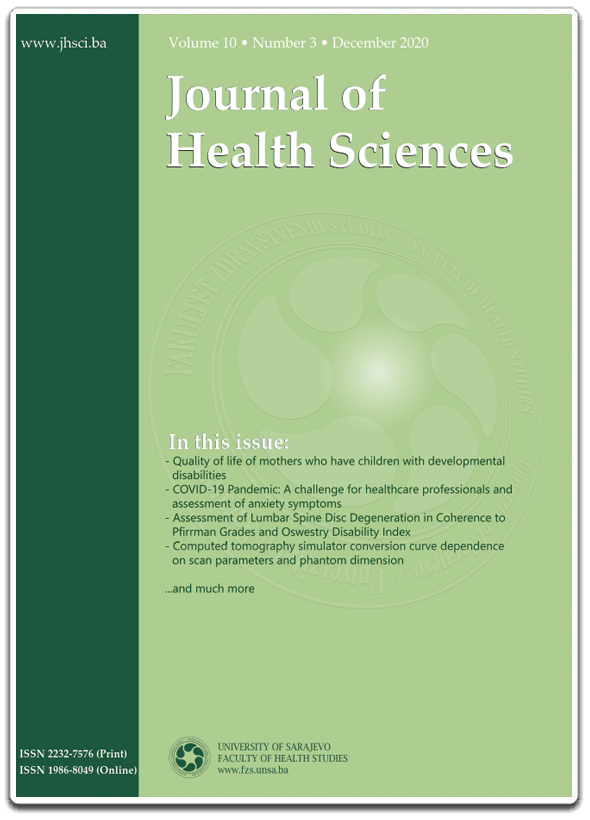Helicobacter pylori infection according to ABO blood group among blood donors in Kosovo
DOI:
https://doi.org/10.17532/jhsci.2011.105Keywords:
H. pylori infection, blood donors, blood groupAbstract
Introduction: Numerous studies have reported a high prevalence of Helicobacter pylori infection among healthy and non-healthy persons in different places. The Aim of the study is to investigate the seroprevalence of H. pylori infection among Kosovo’s Blood donor associated with ABO/Rhesus blood group.Methods: 671 blood donors are tested for H. pylori antibodies and results are classifi ed by way of donation, age, gender, blood groups and education level. Serum antibodies are analyzed by Enzyme Linked Fluorescent Assay test for H. pylori IgG with Biomerieux HPY-VIDAS.
Results: The frequency of IgG antibody for H. pylori among healthy blood donors is 56.9%, there is not found any difference between voluntary and non-voluntary blood donors (57.4% respectively 56.3%)(OR=1.05; 95% CI 0.76 to 1.43; p=0.8). H pylori IgG antibodies positive are detected in 57.0 % ( 126 of 221) of women, compared with 56.9 % ( 256 of 450) of men(OR=0.99; 95% CI 0.72 to 1.38; p=0.96). Serpositive donors are older than seronegative ones (31.9 years, respectively 29.5 years, p=0.02). Mean value of IgG antibody of H. pylori is 3.61 with no significant difference between males and females (3.72 respectively 3.44; p=0.2). The seroprevalence of H. pylori infection is similar among blood groups: O (57.4%), A (56.2%), B (59.6%), AB (51.4%), RhD positive (56.7%) and RhD negative (58.3%).
Conclusions: The seropositivity of H. pylori is moderately higher in the non voluntary and familiar blood donors among the total Kosovo blood donors. There is not found a significant relationship between infection with H. pylori and ABO/Rhesus blood group among blood donors.
Downloads
Download data is not yet available.
Downloads
Published
15.09.2011
Issue
Section
Research articles
How to Cite
1.
Helicobacter pylori infection according to ABO blood group among blood donors in Kosovo. JHSCI [Internet]. 2011 Sep. 15 [cited 2026 Feb. 16];1(2):83-9. Available from: https://www.jhsci.ba/ojs/index.php/jhsci/article/view/28










